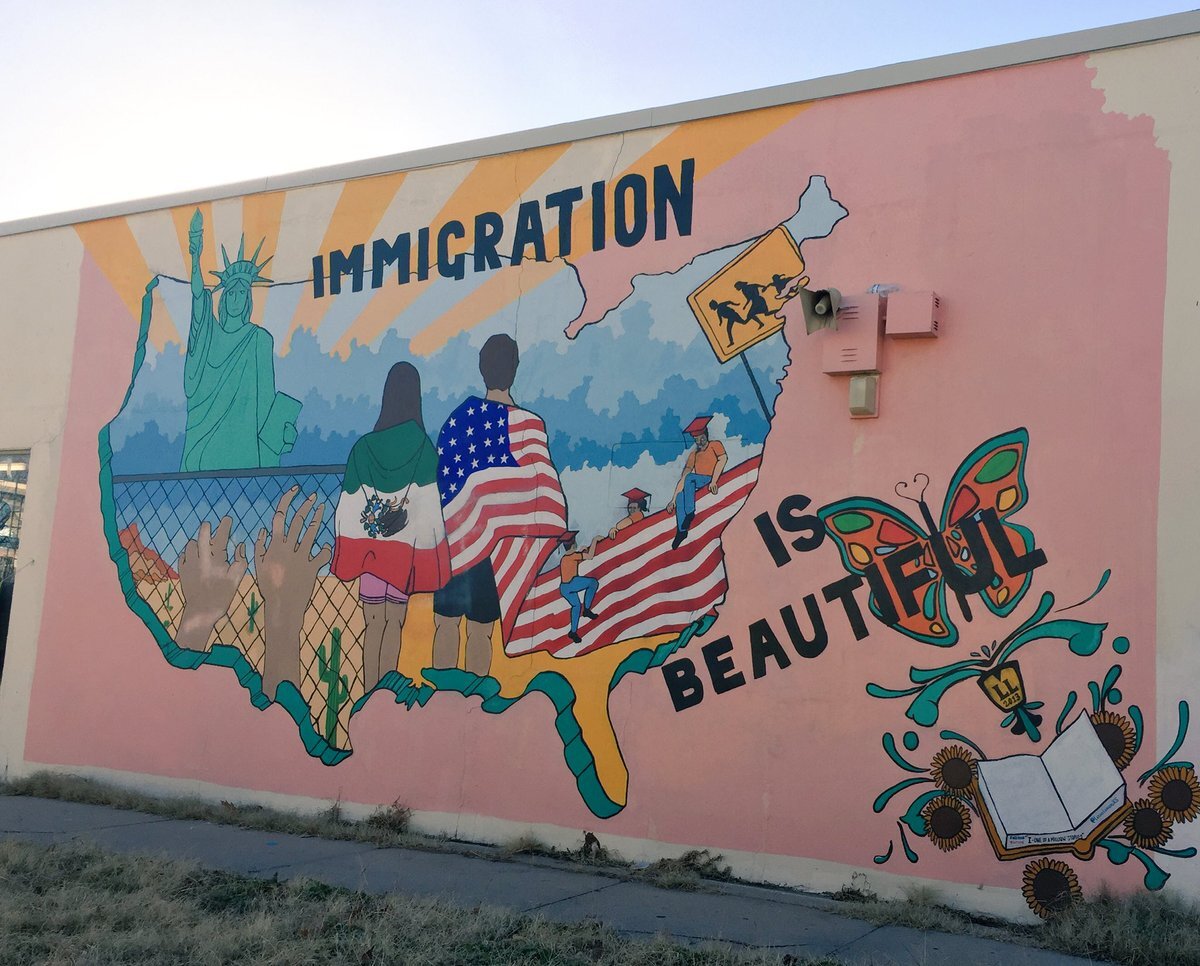Immigrant Injustice: It Started as a Normal Day at Work...
How one woman’s experience of a workplace immigration raid sparked resistance.
Noemi Romero
On a single day in January 2013, my life changed completely. I was 21 years old and working my first job. Even though I had lived in Phoenix, AZ since I was three years old, I was undocumented. I was working in order to pay the application fee for the deferred action program that President Obama had recently announced for people like me who had come to the United States as children. Those days, I was always talking about all the things I would do after I got my work permit: get a better job, go back to school to become a nurse or cosmetologist, and live out my dreams. But nothing turned out the way I thought it would. That day I was arrested in a workplace raid by Maricopa County Sheriff Joe Arpaio and charged with a felony by County Attorney Bill Montgomery.
It started as a normal day at work. I was a cashier at Lam’s Supermarket. One minute, I was ringing up someone’s purchases; the next I looked up and there were Sheriff’s deputies everywhere. I didn’t know what was going on but I could tell something was wrong and texted my mom to tell her that the police were there. The deputies came over to handcuff me, take my phone and my purse away. I couldn’t stop crying and no one would explain to me what was happening. When they lined us up to take us to the vans waiting outside, I caught a glimpse of my mom in the crowd outside. When I saw her, I felt even worse, so embarrassed for what was happening. Before I knew it, I was in a caged van, being driven away.
My coworkers and I were taken to a processing station, where they handcuffed us to a bench for hours. At one point, they started to give out sack lunches. I asked if I could eat my own lunch, which was still in my purse. Those cold lentils were the last comfort from home, the last meal cooked by my mom that I would eat for over three months.
I spent two months in the Estrella County Jail, run by the notorious Sheriff Joe Arpaio, where I faced humiliation after humiliation. We were forced to wear striped uniforms that never seemed clean and had to shower in a huge room with dozens of shower heads. I slept in a room with more than a hundred other women and was taught to respond to “54” as if it were my name. The first night I didn’t sleep at all, I just sat on my tiny, hard bed and cried, worried that I would go crazy in there.
I was eventually transferred to ICE, and my family was told I was not eligible to be released because I had a felony conviction. My family started working with a community organization called Puente, who helped close my immigration case through legal advocacy, political pressure and community organizing. I remember so clearly the day that they finally let me out, the buzzer going off just before the door sprang open. I hugged my mom and my little sister for the first time in too long.
The world needs to know about the way Arpaio and Montgomery target immigrants who are working to support themselves and improve their lives. Even though my deportation case is closed, I can’t have the same hopes for my future that I did before the raid. I am now not eligible for the work permit I was saving up for to get a better job. Going back to school is out of the question because I am not eligible for in-state tuition. Now there are boundaries and limits to what I can do and dream of doing.
When someone from Puente first told me that they wanted to bring a case against Arpaio and Montgomery to stop the raids, I was hesitant to get involved at first because I was scared. But I knew I needed to share with others the story of what happened to me. This lawsuit could make it so that no one has to go through what I went through. I hope to one day clear my record of the felony charge I received for working. Then, I can have dreams again.
We’ve already accomplished one big victory with this lawsuit in January 2015, when a judge granted us an injunction stopping the raids. In April 2016, a higher court reversed the injunction but Puente is continuing to fight and the organization has filed a petition with the appeals court for a rehearing. We will not stop fighting until we reach our goal, which is for Arpaio and everyone he works with to stop criminalizing people for good. These days, I help out in the Uno por Uno Puente legal office, empowering people who have immigration cases to represent themselves. Whenever we receive letters from people in detention who say they are tired of being here, I understand where they are coming from. It’s those of us who know how horrible this experience is who will make sure that everyone is released and that the targeting of our community stops.
Noemi is a member of the organization that serves as lead plaintiff in Puente v. Arpaio, a lawsuit brought with support from the Impact Fund that is challenging the constitutionality of two Arizona identity theft laws on which Maricopa County’s workplace raids are based. Other plaintiffs in the case include Sara Cervantes Arreola, Elia Estrada, and Reverends Susan Frederick-Gray, Andy Burnette, and Erin Tamayo. Plaintiffs are represented by the University of California, Irvine School of Law Immigrant Rights Clinic, the National Day Laborer Organizing Network, the ACLU Foundation of Arizona, attorney Ray Ybarra Maldonado, Quarles & Brady LLP, and Hadsell Stormer & Renick, LLP. This blog was first published August 18, 2015.
UPDATE: 05.08.19, FINAL SETTLEMENT
In 2007 and 2008, Arizona legislators, led by then Rep. Russell Pearce, re-fashioned the state’s identity theft laws to brand undocumented immigrants as felons for working with a false name or identity. Relying on these laws, Sheriff Arpaio, supported by Maricopa County Attorney Bill Montgomery, began conducting raids of local businesses. In total, the Sheriff’s Office conducted over 80 workplace operations, leading to the arrest of at least 806 employees.
The final settlement provides, among other things, that previous rulings by U.S. District Court Judge David Campbell, finding the practices of the Maricopa County Sheriff’s Office (MCSO) and Maricopa County Attorney’s Office (MCAO) unconstitutional, will not be appealed.
In October 2017, Judge Campbell awarded plaintiffs just over $1 million in attorneys’ fees in recognition of their partial success in the case. The County agreed to pay nearly all of that sum, in addition to amounts awarded for plaintiffs’ expenses and costs, as part of the settlement.
“We are heartened to know that organizations and firms that came together to litigate this case will be able to recoup some of their investment of time and resources,” said Annie Lai, co-director of the Immigrant Rights Clinic at UC Irvine School of Law. “We intend to use the funds to continue providing assistance to vulnerable communities in the fights to come.”










